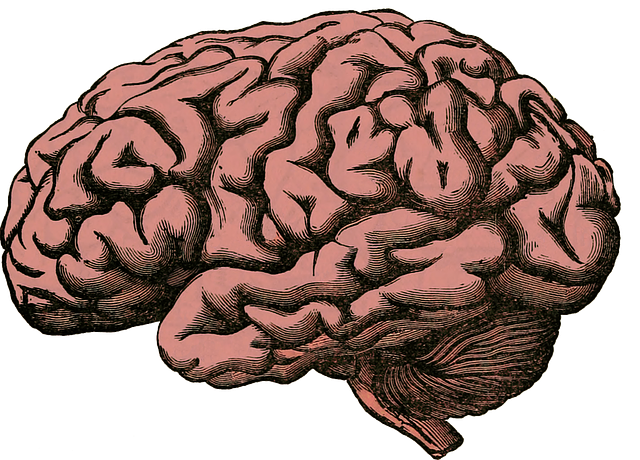Boulder ADD-ADHD Therapy professionals focus on personalized mood regulation strategies tailored to the unique emotional challenges faced by individuals with ADD-ADHD. Techniques like CBT, mindfulness, structured routines, and stress reduction prevent meltdowns and enhance self-awareness. Beyond traditional therapy, evidence-based practices such as Compassion Cultivation and Mental Wellness Coaching foster resilience and self-compassion. Boulder ADD-ADHD Therapy combines these methods to teach powerful mood management skills, improving clients' emotional well-being, stress, anxiety, and overall mental health.
Mood regulation is a vital aspect of managing ADD/ADHD, offering strategies for a more balanced and fulfilling life. This article explores the intricate nature of mood control, providing insights into understanding and addressing emotional fluctuations associated with ADD/ADHD. We present practical daily techniques coupled with the benefits of professional support from Boulder ADD-ADHD Therapy, a leading resource for navigating complex mood management. Discover how these approaches can transform your relationship with emotions and enhance overall well-being.
- Understanding Mood Regulation: Unraveling the Complexities of ADD-ADHD
- Practical Strategies for Daily Life: A Comprehensive Approach
- Boulder ADD-ADHD Therapy: Navigating Mood Management with Professional Support
Understanding Mood Regulation: Unraveling the Complexities of ADD-ADHD

Understanding Mood Regulation: Unraveling the Complexities of ADD-ADHD
Mood regulation is a complex process that involves managing and stabilizing emotions, particularly in individuals with Attention Deficit Disorder – Hyperactivity and Impulsivity (ADD-ADHD). In Boulder ADD-ADHD Therapy, professionals recognize that each person’s emotional experience is unique. Effective mood regulation strategies must account for these individual differences, focusing on personalized techniques to promote emotional well-being. By delving into the intricacies of ADD-ADHD, therapists can design tailored interventions that address specific challenges related to impulsivity, inattention, and hyperactivity.
Emotional well-being promotion techniques, such as cognitive behavioral therapy (CBT), mindfulness practices, and structured routines, have proven beneficial for managing ADD-ADHD symptoms. These methods aim to enhance self-awareness, develop coping mechanisms, and improve executive functioning skills. Additionally, stress reduction methods play a crucial role in mood regulation by teaching individuals healthy ways to manage challenging situations and prevent emotional meltdowns. For mental health professionals, risk management planning is essential; it involves identifying potential triggers, implementing safety strategies, and ensuring effective communication to support clients’ long-term mental health and well-being.
Practical Strategies for Daily Life: A Comprehensive Approach

Incorporating practical strategies for mood regulation into daily life is a comprehensive approach to managing mental health, especially for individuals navigating conditions like ADD-ADHD. Beyond traditional therapy modalities, such as those offered by Boulder ADD-ADHD Therapy, several evidence-based practices have proven effective. Mental Health Policy Analysis and Advocacy plays a crucial role in promoting accessible resources, ensuring that everyone has the chance to explore these strategies.
Compassion Cultivation Practices and Mental Wellness Coaching Programs Development are two notable methods gaining traction. The former encourages cultivating self-compassion, fostering resilience against negative mood states. The latter provides personalized guidance, teaching individuals to recognize and manage their emotional triggers. Integrating these practices into routines can significantly enhance overall mental wellness, offering practical tools for navigating life’s challenges.
Boulder ADD-ADHD Therapy: Navigating Mood Management with Professional Support

In Boulder, ADD-ADHD therapy plays a pivotal role in teaching individuals effective mood management strategies. This therapeutic approach leverages evidence-based techniques to help clients navigate their emotional states more skillfully. By combining cognitive behavioral therapy (CBT) with other innovative practices, therapists guide patients towards understanding and regulating their moods better. The focus is on cultivating Mind Over Matter principles, boosting confidence, and fostering a personalized Self-Care Routine Development for Better Mental Health. Through this holistic process, individuals gain the tools to handle stress, anxiety, and mood swings more effectively, leading to improved overall well-being.
Boulder ADD-ADHD therapy offers a supportive environment where clients can explore their emotional experiences without judgment. Therapists employ tailored interventions to address specific challenges, ensuring each individual receives the care they need. By integrating various therapeutic methods, this approach empowers people to take charge of their mental health and cultivate lasting positive changes in their mood regulation capabilities.
Mood regulation is a multifaceted skill, especially for those managing conditions like ADD-ADHD. While understanding complex neurological factors is essential, practical strategies and professional support play pivotal roles in daily life management. Boulder ADD-ADHD Therapy offers tailored guidance, empowering individuals to navigate mood swings effectively and enhance their overall well-being. By combining comprehensive approaches with expert care, one can achieve better control over their emotional state and lead a more fulfilling life.














